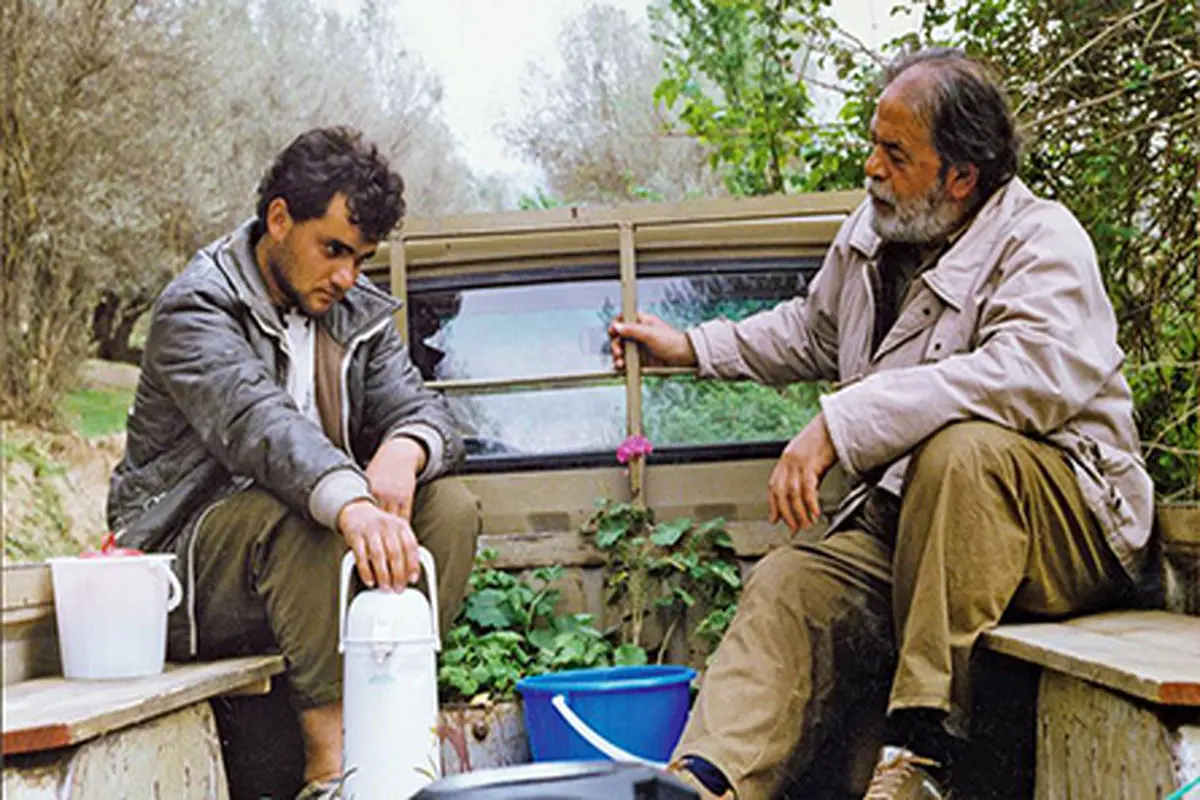Kiarostami’s “Through the Olive Trees” will be screened by Tehran museum
The cinematheque of the Tehran Museum of Contemporary Art will screen Kiarostami’s “Through the Olive Trees”.

MojNews-The cinematheque of the Tehran Museum of Contemporary Art will screen Kiarostami’s “Through the Olive Trees”.
The cinematheque of the Tehran Museum of Contemporary Art is set to screen a restored version of the renowned Iranian director Abbas Kiarostami’s film “Through the Olive Trees”.
The screening scheduled for Sunday will be followed by a review session.
"Through the Olive Trees" is a 1994 drama written, produced, edited, and directed by acclaimed filmmaker Abbas Kiarostami. As the final installment of Kiarostami's Koker trilogy, the story is set in earthquake-devastated Northern Iran and revolves around the making of the movie "And Life Goes On...", a revisit of his earlier work "Where Is the Friend's Home?". The film explores the interplay between art and reality, skillfully blurring the lines between fiction and truth in typical Kiarostami fashion.
The film follows Hossein Rezai, a local stonemason-turned-actor, who faces challenges both on and off the movie set where he proposes to his co-star, Tahereh. Misunderstandings arise due to his social status and illiteracy, causing Tahereh's family to reject his offer. As the boundaries between their on-screen roles and personal lives blur, the complexities of love and communication are magnified.
The film was initially chosen as Iran's entry for the Best Foreign Language Film category at the 67th Academy Awards, though it did not receive a nomination. Despite this, "Through the Olive Trees" has been hailed by many as a cinematic masterpiece for its nuanced storytelling and rich exploration of relationships and human emotions. The poignant and thought-provoking narrative leaves the audience pondering the unresolved conclusion as the characters navigate through the olive groves, symbolizing the ambiguity of life's answers.
The film garnered acclaim from international cinema critics, particularly in France, and was nominated for the prestigious Palme d'Or at the 1994 Cannes Film Festival. It went on to win the Espiga de Oro at the 1994 Seminci in Valladolid, further solidifying its reputation. The movie's enigmatic final scene sparked vibrant discussions and was lauded for its thought-provoking nature.
In the 2012 Sight & Sound poll, “Through the Olive Trees” was recognized by six critics and four directors as one of the top 10 greatest films ever made.
Abbas Kiarostami (1940–2016) was a highly acclaimed Iranian filmmaker known for his unique storytelling style and innovative approach to cinema. His films often blurred the lines between reality and fiction, challenging viewers to question the nature of truth and perception. Kiarostami's works, characterized by their minimalist and naturalistic aesthetic, delved deep into the complexities of human emotions and relationships, offering a profound and contemplative look at life and society.
Throughout his career, Kiarostami gained international recognition and numerous awards, including the Palme d'Or at the Cannes Film Festival for his film "Taste of Cherry." He was considered a master of the cinematic art form, with critics praising his ability to capture the essence of everyday life in a poetic and profound manner. Kiarostami's influence extended beyond the borders of Iran, shaping the landscape of world cinema and inspiring generations of filmmakers with his unparalleled vision and storytelling prowess.

Add Comment